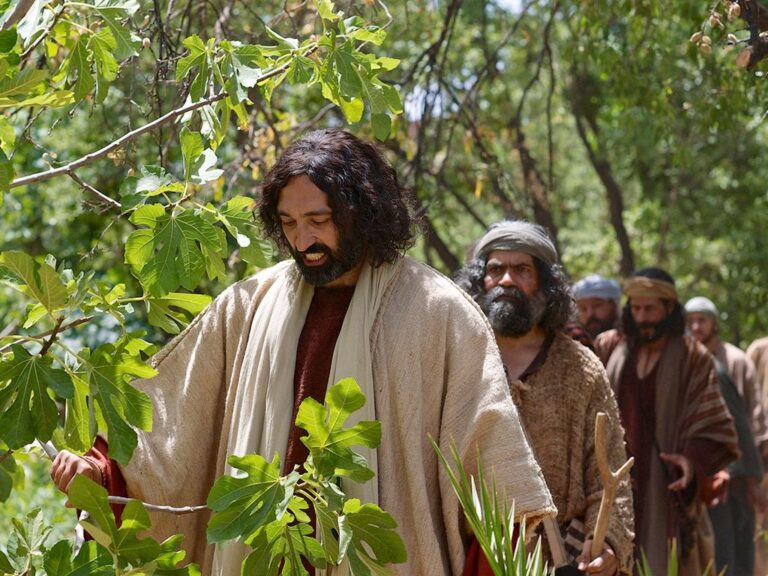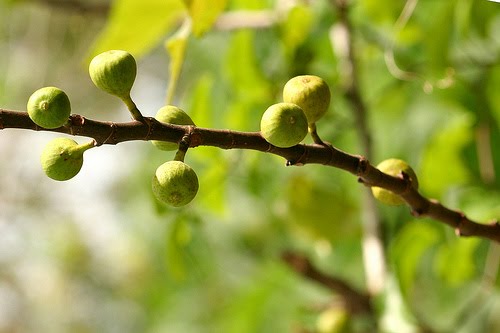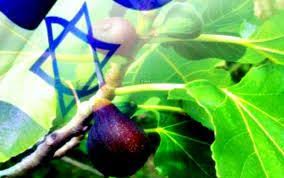Jesus went to a fig tree searching for food to eat (Matthew 21:18 -22; Mark 11:12 -14, 20-21). When He saw that there were no figs on the tree He cursed it. The issue with this story is that it wasn’t the season for figs according to Mark 11:13! If Jesus is God why didn’t He know that it wasn’t the season for figs? And why would He curse the tree when it wasn’t its fault that it wasn’t fig season? Read on to discover the exegetical evidence for Jesus cursing the fig tree. It is not what you think.
Many feel that it is not like Jesus, therefore somebody must definitely have misinterpreted what really took place, or turned a spoken parable into an acted miracle, or something like that. Some, on the other hand, accept the story since it reveals that Jesus was human enough to get unreasonably irritated on occasion. It appears, nevertheless, that a closer understanding of fig trees would have avoided such misconceptions. ‘The time of the fig is not yet,’ states Mark, for it was right before Passover, about 6 weeks before the fully-formed fig appears. The simple fact that Mark includes these words reveals that he understood what he was speaking about.

When the fig leaves appear about the end of March, they are accompanied by a crop of little knobs, called taqsh by the Arabs or breba figs, a sort of fore-runner of the real figs. These taqsh are consumed by peasants and others when hungry. They drop off prior to the real fig is formed. However if the leaves appear unaccompanied by taqsh, there will be no figs that year. So it was obvious to our Lord, when He turned aside to see if there were any of these taqsh on the fig-tree to relieve His hunger for the time being, that the absence of the taqsh indicated that there would be no figs when the time of figs came. For all its fair foliage, it was a fruitless and an irredeemable tree.

The cursing of the fig tree is a played or acted out parable, one which cautioned the country of Israel of upcoming judgment. The Old Testament frequently utilizes the fig tree as a symbol of national Israel:
“I will take away their harvest, declares the LORD. There will be no grapes on the vine. There will be no figs on the tree, AND THEIR LEAVES WILL WITHER. What I have given them will be taken from them.’” Jeremiah 8:13
“You may say, ‘The LORD has raised up prophets for us in Babylon,’ but this is what the LORD says about the king who sits on David’s throne and all the people who remain in this city, your countrymen who did not go with you into exile- yes, this is what the LORD Almighty says: ‘I will send the sword, famine and plague against them and I will make them like poor figs that are so bad they cannot be eaten. I will pursue them with the sword, famine and plague and will make them abhorrent to all the kingdoms of the earth and an object of cursing and horror, of scorn and reproach, among all the nations where I drive them. For they have not listened to my words,’ declares the LORD, ‘words that I sent to them again and again by my servants the prophets. And you exiles have not listened either,’ declares the LORD.” Jeremiah 29:15-19
“When I found Israel, it was like finding grapes in the desert; when I saw your fathers, IT WAS LIKE SEEING THE EARLY FRUIT ON THE FIG TREE. But when they came to Baal Peor, they consecrated themselves to that shameful idol and became as vile as the thing they loved… Ephraim is blighted, their root is withered, they yield no fruit. Even if they bear children, I will slay their cherished offspring.” Hosea 9:10, 16
“What misery is mine! I am like one who gathers summer fruit at the gleaning of the vineyard; there is no cluster of grapes to eat, none of the early figs that I crave. The godly have been swept from the land; not one upright man remains. All men lie in wait to shed blood; each hunts his brother with a net. Both hands are skilled in doing evil; the ruler demands gifts, the judge accepts bribes, the powerful dictate what they desire- they all conspire together. The best of them is like a brier, the most upright worse than a thorn hedge. The day of your watchmen has come, the day God visits you. Now is the time of their confusion.” Micah 7:1-4
“All your fortresses are like fig trees with their first ripe fruit; when they are shaken, the figs fall into the mouth of the eater.” Nahum 3:12
The following helps clarify why Jesus did what he did. Christ came looking for what the Old Testament mentions Yahweh searches after, specifically, an evidence that Israel was a fruitful tree and not barren and dry. Yet instead of noticing the early fig, which would have shown that Israel was spiritually alive and capable of bearing the fruit which pleases God, Christ discovered the nation spiritually dead and barren. Because of Israel’s spiritual barrenness, God would chop down His fig tree, His very own vine, and burn it:
“Then he told this parable: ‘A man had a fig tree, planted in his vineyard, and he went to look for fruit on it, but did not find any. So he said to the man who took care of the vineyard, “For three years now I’ve been coming to look for fruit on this fig tree and haven’t found any. Cut it down! Why should it use up the soil?” “Sir,” the man replied, “leave it alone for one more year, and I’ll dig around it and fertilize it. If it bears fruit next year, fine! If not, then cut it down.”’” Luke 13:6-9
“He then began to speak to them in parables: ‘A man planted a vineyard. He put a wall around it, dug a pit for the winepress and built a watchtower. Then he rented the vineyard to some farmers and went away on a journey. At harvest time he sent a servant to the tenants to collect from them some of the fruit of the vineyard. But they seized him, beat him and sent him away empty-handed. Then he sent another servant to them; they struck this man on the head and treated him shamefully. He sent still another, and that one they killed. He sent many others; some of them they beat, others they killed. He had one left to send, a son, whom he loved. He sent him last of all, saying, “They will respect my son.” But the tenants said to one another, “This is the heir. Come, let’s kill him, and the inheritance will be ours.” So they took him and killed him, and threw him out of the vineyard. What then will the owner of the vineyard do? He will come and kill those tenants and give the vineyard to others.’” Mark 12:1-9
“O Jerusalem, Jerusalem, you who kill the prophets and stone those sent to you, how often I have longed to gather your children together, as a hen gathers her chicks under her wings, but you were not willing. Look, your house is left to you desolate. For I tell you, you will not see me again until you say, ‘Blessed is he who comes in the name of the Lord.’” Matthew 23:37-39
“As he approached Jerusalem and saw the city, he wept over it and said, ‘If you, even you, had only known on this day what would bring you peace-but now it is hidden from your eyes. The days will come upon you when your enemies will build an embankment against you and encircle you and hem you in on every side. They will dash you to the ground, you and the children within your walls. They will not leave one stone on another, because you did not recognize the time of God’s coming to you.’” Luke 19:41-44
This was the significance behind Jesus’ cursing the fig tree, as a sign that God came trying to find spiritual fruitfulness amongst His covenant people however saw none, and would for that reason bring destruction upon them.
As it stands, there is no problem with Jesus cursing the fig tree, nor does this act weaken His absolute perfect Deity.
